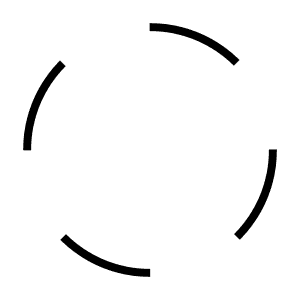Available as 320k MP3 or 24bit FLAC
Tracklisting:
Gnarlage Of Self
1. 10 Banks Of The River Nein 2. Extinct Lord 3. Galling Truth 4. Bent Oath Scenario 5. It's A Fuck On (From Jeuvre's "Time Under Hark") 6. Decalage For 3 TVs In Layering Off Dario 7. Decalage In Vivid Counts 8. Degnarlage In Test Card Frame 9. Prelude To Speedo Foyer 10. Make Your Own World Now (From Hadbegor's "Sleep Yer Lives")
INTROSPEX / ORTRESPOX
11. INTROSPEX12. ORTRESPOX
"The Godfather of Wild Pop."
"'Trouble Number' is a major retrospective of four decades of peerless, visionary, and feral production from Gwilly Edmondez - the dad from Yeah You. This 90 minute package cherry picks from hundreds upon hundreds of hours of psychoanalysis through pop waste, performed by Gwilly upon himself since the founding of his '80s outfit Radioactive Sparrow. Bewildering and basically incomparable in its entirety, 'Trouble Number' mongrelises strains of hip-hop, black metal, folk, power balladry, more more more, with a properly prophetic, popwise soul. Pay your respects."
Says Gwilly:
Gwilly Edmondez just grew as a character project in the mid-1980s, offshoot from the to’l-spon/non-com/pop-kak invention-pool that was/is Radioactive Sparrow, itself founded by a group of Bridgend (13-year-old/non-voter) elements in 1980. Gwilly is a solo/collaborative improvisation that started out making fake, unwritten rock, then progressed in the 1990s to real unaccompanied rock, before settling into a mode of practice defined by sampling, tapes and vocals. Over many years, Gwilly has struck up many material partnerships and misadventurist associations of, with the likes of James Joys, Val Persona, Faye MacCalman, Karl D’Silva, Tobias Illingworth, Laura Late-Girl, b-cátt, Odie Ji Ghast, THF Drenching, Tony Gage, Richard Bowers, People Like Us... But in the end none more so than Elvin Brandhi. ‘Gnarlage of Self’, the C30 album, was made on Newcastle’s hottest day in 2017, in an upstairs room in Heaton, recorded by Dario Lozano Thornton with Schoeps MK2/MK8 pair to Sonodore preamps in one take subsequently edited and disorganized by Dario. ‘Gwilly Edmondez: A Retrospective Mixtape Made Questionably & Unquestioningly by Himself’ started out as a kind of slapstick/slapdash best of... but quickly became its own entanglement of old stuff, new-but-unused stuff made for the C30, and bits of recent live sets. The first half, side one, tries to bungle blindly into the nature of supplication, confession and self-condemning introspection – find the self then kill it; side two starts on the other side of death inhaling wafts of cheap air freshener as a means to hallucinate a personal history that never could’ve happened anyway, before scrambling back through the rear end of personality only to be consigned to liturgical palliatives in a manner carried out by his countless forebears of the cloth. It could only end with “Walken’s Kiss”, a sardonically pronounced cliffhanger.
---
Music & Artwork by Gwilly Edmondez. Mix and Edits by Dario Lozano Thornton and Gwilly Edmondez.


















